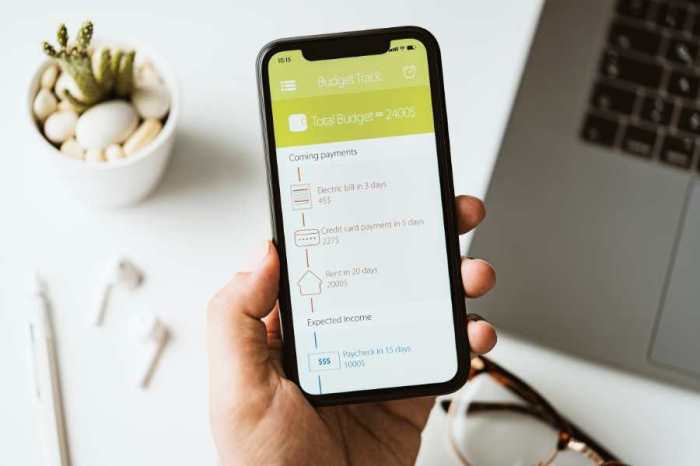Personal Finance for Freelancers sets the stage for this enthralling narrative, offering readers a glimpse into a story that is rich in detail with american high school hip style and brimming with originality from the outset.
Freelancers navigate a unique financial landscape, requiring savvy budgeting, tax planning, and emergency fund building skills to thrive in their independent work environment. This guide dives into the essentials of managing personal finances as a freelancer, providing practical tips and strategies for financial success in the gig economy.
Overview of Personal Finance for Freelancers
Personal finance for freelancers refers to the management of one’s money and financial resources as an independent contractor or self-employed individual. It involves budgeting, saving, investing, and planning for taxes without the stability of a traditional paycheck.The importance of managing finances as a freelancer cannot be overstated. Freelancers do not have the security of a steady income, benefits, or retirement plans provided by an employer.
Therefore, it is crucial for freelancers to be proactive in budgeting, saving for emergencies, and planning for their financial future.Personal finance for freelancers differs from that of traditional employees in several ways. Freelancers are responsible for their own taxes, healthcare, retirement savings, and other benefits that are typically provided by an employer. They must also manage irregular income streams, handle client payments, and navigate the ups and downs of the gig economy.
Income Management
Freelancers must carefully track their income from different clients and projects. It is important to set aside a portion of each payment for taxes, savings, and business expenses. Creating a budget and sticking to it can help freelancers maintain financial stability despite the fluctuating nature of their work.
Emergency Savings
Having an emergency fund is crucial for freelancers since they do not have the safety net of paid sick leave or unemployment benefits. Freelancers should aim to save at least three to six months’ worth of living expenses in an easily accessible account to cover unexpected costs or periods of low income.
Retirement Planning
Freelancers are responsible for setting up their own retirement accounts, such as a SEP IRA or Solo 401(k). It is important for freelancers to prioritize saving for retirement early on, as they do not have the option of employer-sponsored 401(k) matching contributions or pension plans.
Budgeting for Freelancers
Budgeting is crucial for freelancers to manage their finances effectively, especially since their income can vary from month to month. By creating a budget tailored to their unique situation, freelancers can ensure they have enough funds to cover expenses and save for the future.
Tips for Creating a Budget
- Calculate average monthly income: Determine the average amount you earn each month by looking at past invoices and projects. This will give you a baseline for creating your budget.
- Identify fixed expenses: List out your essential expenses such as rent, utilities, and insurance. These are costs that remain constant each month.
- Factor in variable expenses: Consider expenses that may fluctuate, such as groceries, transportation, and entertainment. Allocate a reasonable amount for these variable costs in your budget.
- Set aside savings: Allocate a portion of your income for savings, emergencies, and retirement. Aim to save at least 20% of your earnings each month.
- Track your spending: Use budgeting tools or apps to monitor your expenses and ensure you stay within your budget. Review your budget regularly and make adjustments as needed.
Managing Irregular Income
As a freelancer, managing irregular income can be challenging but with the right strategies, it is definitely possible to navigate through the ups and downs of your financial flow.
Setting Aside Funds for Lean Months
One important strategy for managing irregular income is to set aside funds for lean months. This means saving a portion of your income during the months when you earn more than usual, so you have a financial cushion to rely on during slower periods. This can help you avoid financial stress and ensure you can cover your expenses even when work is scarce.
- Track your income: Keep a record of your earnings each month to identify patterns and fluctuations in your income.
- Establish a budget: Create a budget that Artikels your essential expenses and discretionary spending, so you know how much you need to cover each month.
- Automate savings: Set up automatic transfers to a separate savings account to ensure you consistently save a portion of your income.
By setting aside funds for lean months, you can build a financial safety net that provides peace of mind and stability in times of uncertainty.
Forecasting Income and Expenses
Forecasting your income and expenses can help you plan ahead and make informed financial decisions as a freelancer. There are tools and methods you can use to estimate your future earnings and track your spending.
- Use accounting software: Consider using accounting software to track your invoices, expenses, and overall financial health.
- Create a financial calendar: Develop a calendar that highlights your expected payments, deadlines, and upcoming expenses to better manage your cash flow.
- Utilize budgeting apps: Explore budgeting apps that can help you monitor your income, set financial goals, and track your expenses on the go.
Tax Planning and Compliance

When it comes to freelancing, tax planning and compliance are crucial aspects that every freelancer should consider. Understanding key tax considerations, deductible expenses, and setting aside taxes throughout the year can help freelancers stay on top of their financial obligations and avoid any tax-related issues.
Key Tax Considerations for Freelancers
- Freelancers are considered self-employed individuals, which means they are responsible for paying both the employer and employee portions of Social Security and Medicare taxes.
- Freelancers need to keep track of their income and expenses throughout the year to accurately report their earnings and claim deductions.
- Quarterly estimated tax payments may be required for freelancers to avoid penalties for underpayment at the end of the year.
- Freelancers may be eligible for additional tax deductions, such as home office expenses, business supplies, travel expenses, and health insurance premiums.
Deductible Expenses for Freelancers
- Home office expenses, including rent, utilities, and internet costs, may be deductible for freelancers who work from home.
- Business-related travel expenses, such as transportation, meals, and accommodation, can be claimed as deductions on tax returns.
- Costs associated with professional development, software subscriptions, and equipment purchases for work purposes are typically deductible for freelancers.
Setting Aside Taxes Throughout the Year
- It’s essential for freelancers to set aside a portion of their income for taxes throughout the year to avoid a large tax bill at the end of the year.
- Creating a separate savings account specifically for tax payments can help freelancers stay organized and ensure they have enough funds to cover their tax obligations.
- Consulting with a tax professional or using accounting software can help freelancers accurately calculate their estimated tax payments and plan accordingly.
Building an Emergency Fund

Having an emergency fund is crucial for freelancers as they often face irregular income and unexpected expenses. It provides a safety net during tough times and prevents financial stress.
Importance of an Emergency Fund for Freelancers
An emergency fund ensures that freelancers have the financial cushion to cover essential expenses like rent, bills, and groceries in case of a sudden drop in income or unexpected costs.
Tips on Building and Maintaining an Emergency Fund
- Set a specific savings goal: Determine how much you need to cover 3-6 months of living expenses and work towards that target.
- Automate your savings: Set up automatic transfers from your checking account to a separate savings account to ensure consistent contributions.
- Cut unnecessary expenses: Identify areas where you can reduce spending and redirect those funds towards your emergency fund.
- Freelance gig for emergencies: Consider taking on extra freelance projects specifically dedicated to building your emergency fund.
Recommended Size of an Emergency Fund for Freelancers, Personal Finance for Freelancers
Financial experts typically advise freelancers to save enough to cover at least 3-6 months of living expenses. However, depending on individual circumstances, some may choose to aim for a larger emergency fund to feel more secure.
